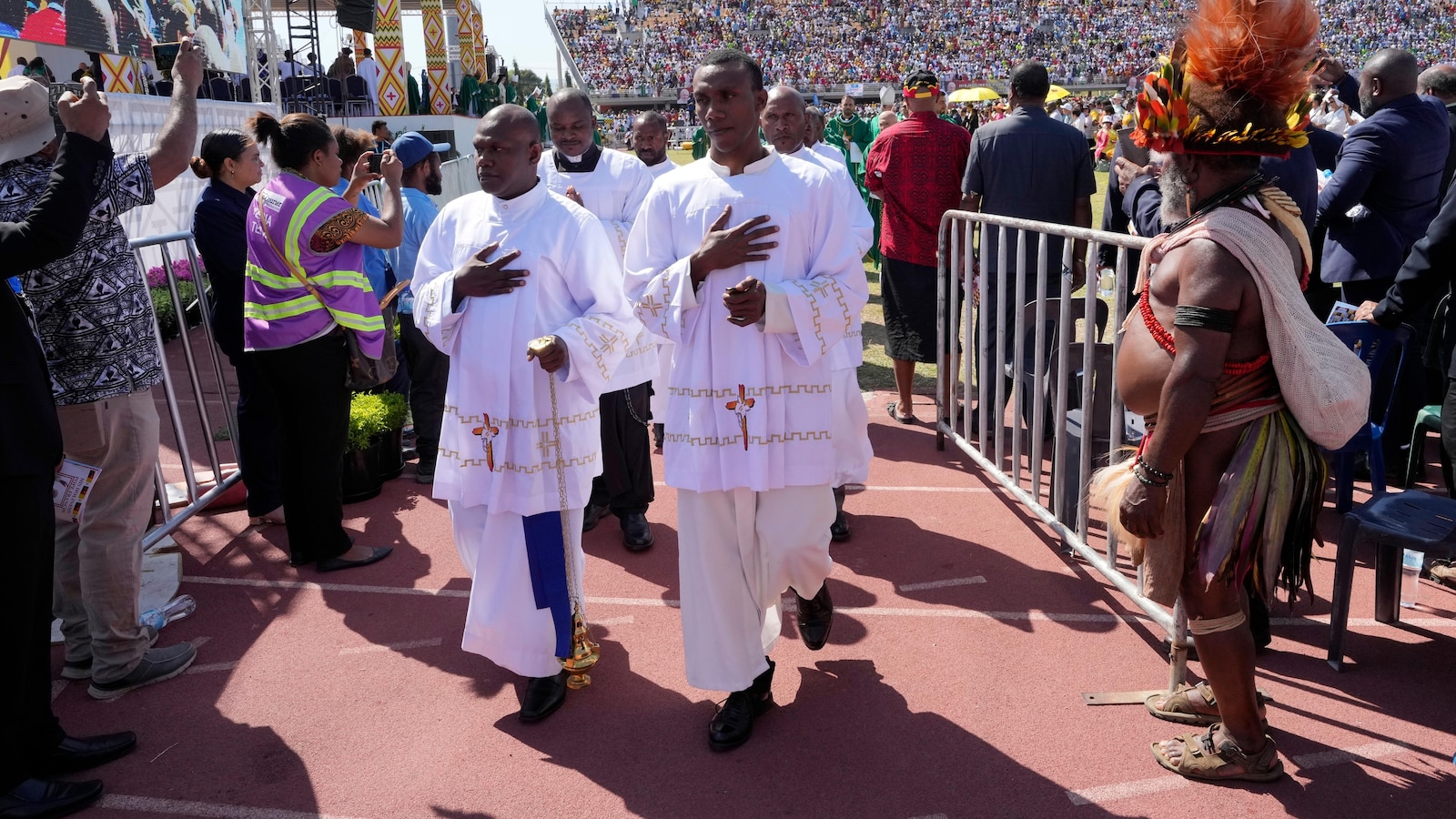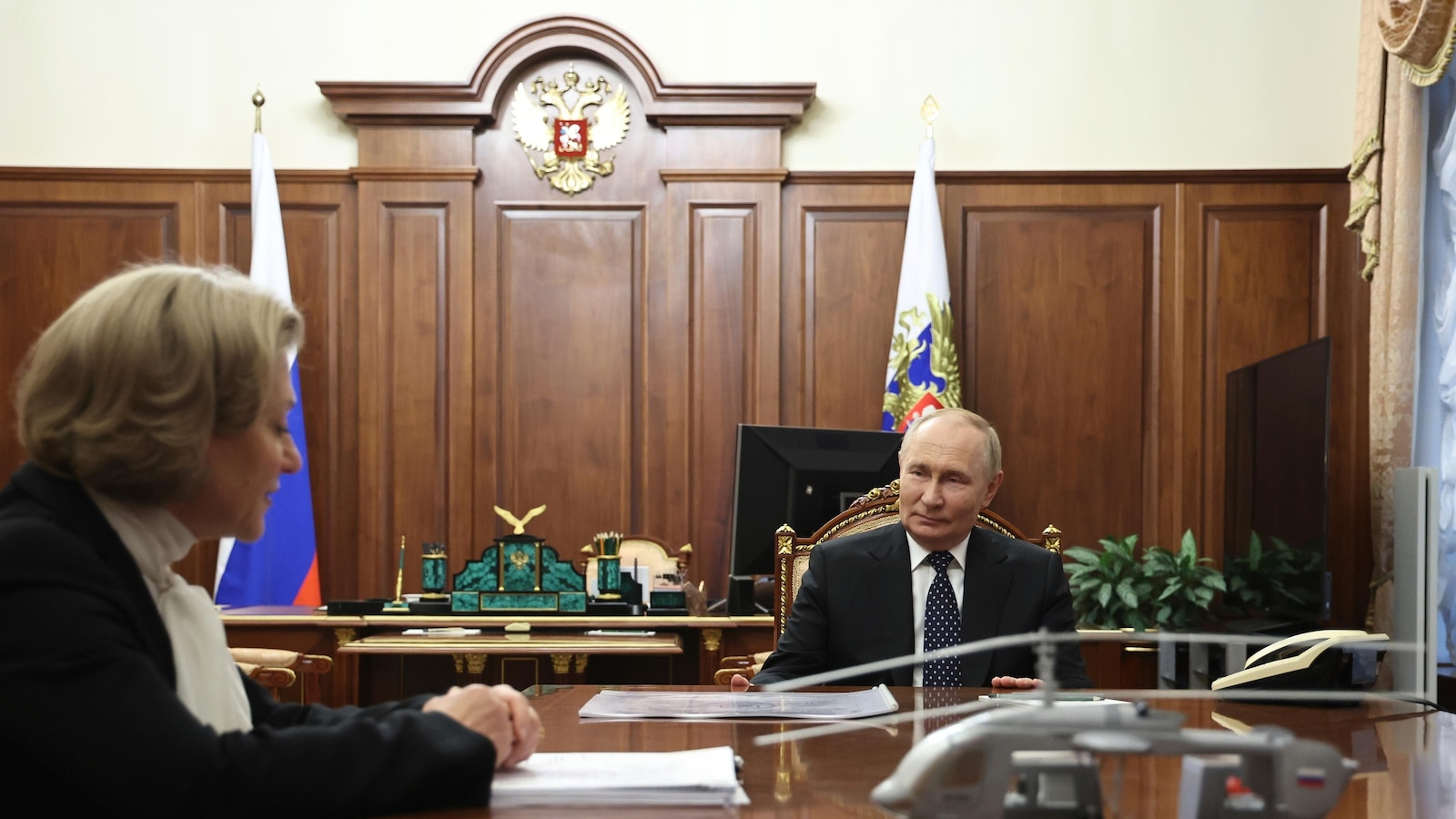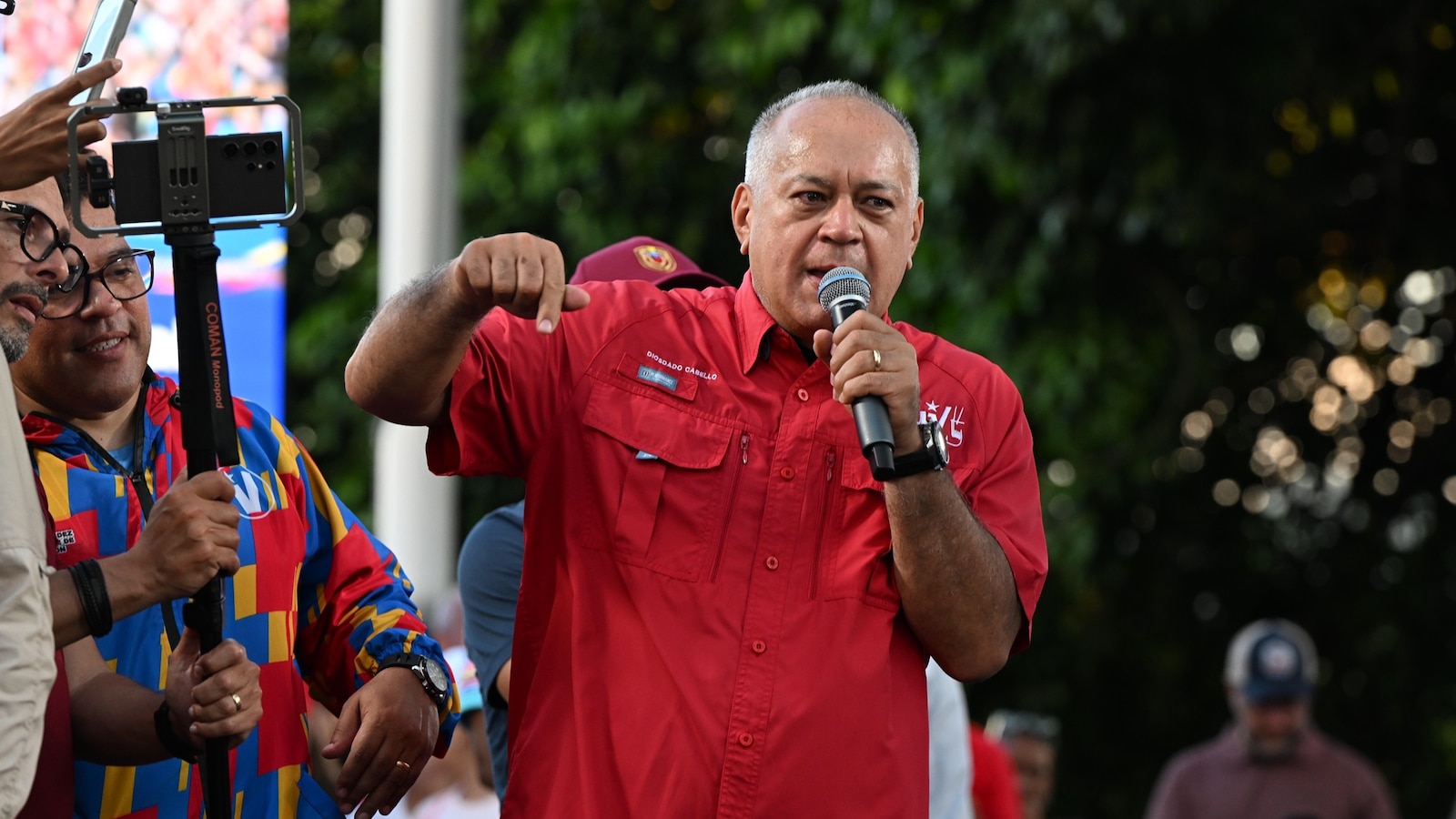
PORT MORESBY, Papua New Guinea — Pope Francis honored the Catholic Church of the peripheries on Sunday as he celebrated Mass in Papua New Guinea before heading to a remote part of the South Pacific nation with a ton of humanitarian aid and toys to deliver to the faithful and missionaries who live there.
An estimated 35,000 people filled the stadium in the capital Port Moresby for the morning Mass. It began with dancers in grass skirts and feathered headdresses performing to traditional drum beats as priests in green vestments processed up onto the altar.
In his homily, Francis told the crowd that they may well feel themselves distant from both their faith and the institutional church, but that God was near to them.
“You who live on this large island in the Pacific Ocean may sometimes have thought of yourselves as a far away and distant land, situated at the edge of the world,” Francis said. “Yet … today the Lord wants to draw near to you, to break down distances, to let you know that you are at the center of his heart and that each one of you is important to him.”
Francis was himself traveling to a distant land on Sunday, flying into remote Vanimo, on Papua New Guinea’s northwest coast, to meet with the small Catholic community there served by missionaries from his native Argentina. He was only traveling with his closest aides and security detail, leaving the Vatican’s full delegation in Port Moresby.
Francis was being transported by a Royal Australian Air Force C-130 cargo plane and was bringing with him one ton of humanitarian aid, including medicine, clothes and toys for children, according to Vatican spokesman Matteo Bruni.
The aircraft, which is based at Australia’s base in Port Moresby, was being used both because of its cargo capacity — it’s also bringing Francis’ popemobile — and because the small airport in Vanimo doesn’t have an ambulift, the wheelchair elevator that Francis now needs to get on and off planes. By flying in on a C-130 Francis can disembark via the ramp, Vatican officials said.
Part of the cargo included eight suitcases of medicine and other necessities that had been prepared by one of the Argentine missionaries, the Rev. Alejandro Diaz, during a recent trip to Rome and left with the Vatican to bring in, the ANSA news agency reported.
Francis has long prioritized the church on the “peripheries,” saying it is actually more important than the center of the institutional church. In keeping with that philosophy, Francis has largely shunned foreign trips to European capitals, preferring instead far-flung communities where Catholics are often a minority.
Vanimo, population 11,000, certainly fits the bill. Located near Papua New Guinea’s border with Indonesia, the coastal city is perhaps best known as a surfing destination.
Francis, history’s first Latin American pope, has also had a special affinity for the work of Catholic missionaries. As a young Argentine Jesuit, he had hoped to serve as a missionary in Japan, but was prevented from going because of his poor health.
Now as pope, he has often held up missionaries as models for the church, especially those who have sacrificed to bring the faith to far-away places.
There are about 2.5 million Catholics in Papua New Guinea, according to Vatican statistics, out of a population in the Commonwealth nation believed to be around 10 million. The Catholics practice the faith along with traditional Indigenous beliefs, including animism and sorcery.
On Saturday, Francis heard first-hand about how women are often falsely accused of witchcraft, then shunned by their families. In remarks to priests, bishops and nuns, Francis urged the church leaders in Papua New Guinea to be particularly close to these people on the margins who had been wounded by “prejudice and superstition.”
“I think too of the marginalized and wounded, both morally and physically, by prejudice and superstition sometimes to the point of having to risk their lives,” Francis said. He urged the church to be particularly close to such people on the peripheries, with “closeness, compassion and tenderness.”
Francis’ visit to Vanimo was the highlight of his visit to Papua New Guinea, the second leg of his four-nation tour of Southeast Asia and Oceania. After first stopping in Indonesia, Francis heads on Monday to East Timor and then wraps up his visit in Singapore later in the week.
___
Associated Press religion coverage receives support through the AP’s collaboration with The Conversation US, with funding from Lilly Endowment Inc. The AP is solely responsible for this content.
Pope Francis made headlines recently when he delivered humanitarian aid and toys to remote villages in Papua New Guinea during a celebration in the periphery. The Pope’s visit to this remote region brought much-needed attention to the struggles faced by the people living there, and his actions underscored the importance of reaching out to those on the margins of society.
Papua New Guinea is a country known for its rugged terrain and isolated communities, making it difficult for aid organizations to reach those in need. The Pope’s decision to visit these remote villages and deliver aid personally sent a powerful message of solidarity and compassion.
During his visit, Pope Francis distributed food, clothing, and medical supplies to families in need. He also brought toys for the children, bringing smiles to their faces and joy to their hearts. The Pope’s gesture of kindness and generosity was met with gratitude and appreciation from the local community.
In addition to delivering aid, Pope Francis also took the time to meet with community leaders and listen to their concerns. He spoke about the importance of caring for the most vulnerable members of society and emphasized the need for unity and solidarity in the face of adversity.
The Pope’s visit to Papua New Guinea highlighted the challenges faced by remote communities and the importance of providing support and assistance to those in need. His actions serve as a reminder of the power of compassion and the impact that one person can have in making a difference in the lives of others.
As the leader of the Catholic Church, Pope Francis has made it a priority to reach out to marginalized communities and advocate for social justice and equality. His visit to Papua New Guinea exemplifies his commitment to serving those on the periphery and standing in solidarity with those who are often forgotten or overlooked.
In conclusion, Pope Francis’s delivery of humanitarian aid and toys to remote villages in Papua New Guinea during a celebration in the periphery serves as a powerful reminder of the importance of compassion, solidarity, and empathy. His actions have inspired hope and brought joy to those in need, demonstrating the transformative power of kindness and generosity.


